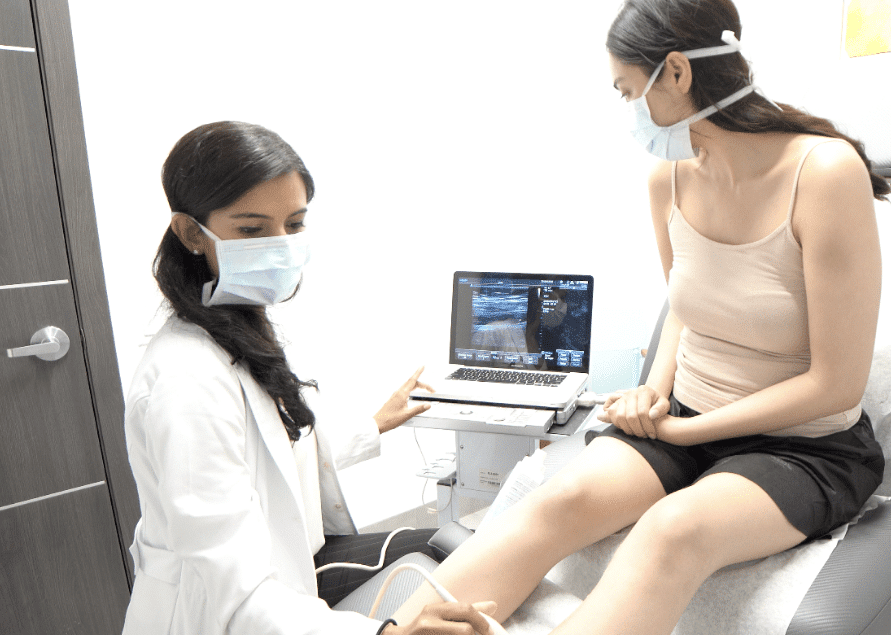What to do about sciatic nerve pain?
Sciatic nerve pain can be an extremely debilitating problem, causing pain, numbness, and even tingling down the back of the leg and into the foot. It can be quite challenging to figure out what to do about sciatic nerve pain. Fortunately, there are several steps you can take to find relief, although it is important to note that anyone suffering from chronic sciatic nerve pain should speak to a back pain doctor for a full diagnosis and to determine the best treatment.
#1. Improve Your Posture
First, if you’re experiencing sciatic nerve pain, it is essential to practice proper posture. Poor posture can cause sciatic nerve pain to worsen, so it is important to keep your back straight and your feet flat on the floor when sitting for long periods. Additionally, if you suffer from sciatica due to a herniated disc or other spinal issues, sleeping in a reclined position may help ease the pain.
#2. Low-Impact Exercise
Exercise can also help relieve sciatic nerve pain. Low-impact exercises such as yoga, swimming, or pilates can help improve flexibility and reduce pain in the affected area. However, it is important to speak with a doctor or physical therapist before beginning any type of new exercise program. Regular stretching and strengthening of muscles surrounding the sciatic nerve can improve the condition.

#3. Rest, Ice, Compression, Elevation
The best way to reduce the pain and discomfort associated with sciatic nerve pain is to practice the RICE method: Rest, Ice, Compression, and Elevation. Rest gives the body and mind a chance to heal, and icing the affected area for 10-15 minutes several times a day can help reduce inflammation and provide temporary relief. Compression can reduce swelling while elevating the affected area can improve blood circulation and reduce inflammation.
#4. Consult a Back Pain Doctor
Finally, you must consult a back pain doctor. A skilled interventional pain specialist can develop a treatment plan tailored to your individual needs and the root cause of the pain. Depending on the severity of your pain, your doctor may recommend lifestyle modifications, physical therapy, axial decompression, or minimally invasive procedures, such as steroid injections, to address the root cause of sciatic nerve pain and improve your symptoms.
New Jersey Back Center is a group of state-of-the-art medical centers specializing in back pain treatments in New Jersey. Our team is led by board-certified interventional pain specialists who use cutting-edge imaging techniques to diagnose the root cause of sciatica and curate a personalized treatment plan consisting of conservative lifestyle changes and minimally invasive procedures, such as corticosteroid injections.
Our back centers in New Jersey are in Woodland Park, Clifton, Paramus, and West Orange. If you’re in Paramus, you can find our back center at 140 NJ-17, Suite 269, just off the Garden State Parkway. Please schedule an appointment at your nearest back center in New Jersey to explore your sciatica nerve pain treatment options.
Who can treat sciatic nerve pain?
If you struggle with sciatic nerve pain, you must consult an interventional back pain specialist. These specialists are trained in diagnosing and treating sciatic nerve pain and providing comprehensive care for the entire spine. They provide patients with a comprehensive evaluation of their condition and a personalized treatment plan tailored to their needs. Interventional back pain specialists use a combination of therapies and medications to reduce sciatica pain, allowing patients to resume their regular activities.
I have pain in my buttock going down the back of my leg: do I have sciatica?
If you’re experiencing pain in your buttock radiating down the back of your leg, it may be sciatica. Sciatica is nerve pain in the lower back caused by pressure on the sciatic nerve. Common symptoms include a tingling or burning feeling in the legs and a dull ache due to the nerve being compressed. It’s best to visit your back pain doctor if you think you may have sciatica so they can perform a physical examination and take a look at your medical history to make an accurate diagnosis.
Does sciatica come on suddenly?
The answer is it can. Sciatica is usually the result of a pinched nerve in the lower spine, and it can cause sudden and severe pain, numbness, and tingling down the leg. In rare cases, sciatica can come on suddenly and without warning, but it’s more common for symptoms to develop gradually over time as the nerve becomes more irritated.
How to make a pinched nerve stop hurting?
A pinched nerve can be an extremely painful experience. Thankfully, there are some steps you can take to help reduce the discomfort and make the pain disappear. You should avoid activities that strain or irritate the affected area. Taking occasional breaks and engaging in gentle stretching exercises may also help.
You can also try applying a cold or hot compress on the area, which can reduce inflammation and improve circulation. Finally, consider trying over-the-counter medications such as ibuprofen, acetaminophen, or naproxen to reduce pain and inflammation. If none of these methods work, it would be best to consult a back pain doctor for diagnosis and further treatment.
What causes sciatic nerve to flare up?
Sciatic nerve flare-ups can be caused by several issues, including physical stress on your lower back, spinal stenosis, disc herniation, or muscle spasms. Improper posture or sitting for extended periods can also contribute to sciatic nerve flare-ups, as can lifestyle factors such as obesity, smoking, or too little exercise.

Recent Comments